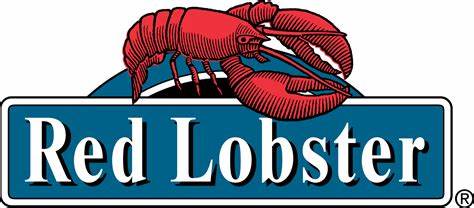Videos of customers indulging in the $20 endless shrimp deal are flooding TikTok. Meanwhile, Red Lobster is grappling with more than 100 restaurant closures, thousands of layoffs, a carousel of CEOs, and even a Chapter 11 bankruptcy filing. Into this chaos steps Damola Adamolekun, the newly appointed 35-year-old CEO tasked with turning the company around.
“There’s definitely a hole to climb out of, and that will be the hardest part,” Adamolekun told CNN during his first on-camera interview as CEO, seated over a spread of lobster tail, snow crab legs, garlic shrimp scampi, crispy dragon shrimp, and their famous cheddar bay biscuits.
“It’s been a tough time with bankruptcy, and the closures have impacted many,” he said, as customers began trickling into the recently remodeled but still understated Red Lobster in a Long Island, New York, outlet mall. The restaurant featured the signature lobster tank at the entrance, a cozy bar, and friendly waitstaff.
Adamolekun, born in Nigeria to a neurologist father and a pharmacist mother, spent his early years in Zimbabwe and the Netherlands before moving to Springfield, Illinois, at age nine. One of the first U.S. chain restaurants he visited with his family was Red Lobster, which quickly became a “staple” for them.
His first experience eating at Red Lobster was a Sunday after church with his parents and siblings. Like millions of Americans, he discovered the joy of eating lobster and cracking crab legs at Red Lobster.
Adamolekun was drawn to the role of CEO not just to lead the turnaround but because of Red Lobster’s legacy as America’s first highly successful casual dining chain. Founded in 1968 by Bill Darden, a trailblazer in the casual dining movement, the chain flourished through the 1970s and 1980s under General Mills’ ownership.
He was also attracted to Red Lobster’s “cultural significance.” Celebrities like Chris Rock and Nicki Minaj once worked there before achieving fame, and Beyoncé famously mentioned the chain in her 2016 hit song “Formation.”
Even after the bankruptcy filing, Red Lobster’s cultural relevance endured, with rapper Flava Flav famously ordering the entire menu in an effort to show support for the chain.
“Mr. Flav has done a lot for us,” Adamolekun said. “We’re very grateful for him.”
Adamolekun is stepping into a company that has been in decline for over a decade, a decline that worsened under the leadership of seafood giant Thai Union Group.
In 2020, Thai Union, which had long supplied shrimp to Red Lobster, acquired a 49% stake in the company, becoming its majority shareholder. Former employees described a toxic and demoralizing work culture under Thai Union’s control. The conglomerate replaced key executives with its own appointees, leading to the firing or resignation of dozens of long-standing Red Lobster leaders.
“I’m sure Thai Union had the best intentions, but the issue is they’re not restaurant operators; they’re shrimp suppliers,” Adamolekun said.
In an effort to boost sales, Red Lobster made its $20 endless shrimp deal a permanent fixture on the menu last year, after offering it as a limited-time promotion for nearly two decades. When Adamolekun saw the deal, he thought, “That’s a very expensive product to offer endlessly.”
The decision proved disastrous. Customers lingered at tables for long periods, ordering course after course of shrimp. This slowed down service, increased wait times, and created operational bottlenecks. Red Lobster lost $11 million in the quarter after launching the promotion. Thai Union eventually cut ties with the chain this year, incurring a $530 million loss on its investment. Thai Union’s CEO even vowed to stop eating lobster.
“You end up stressing the kitchen, the servers, and the host staff. People can’t get a table,” Adamolekun said. “It creates a lot of chaos operationally.”


